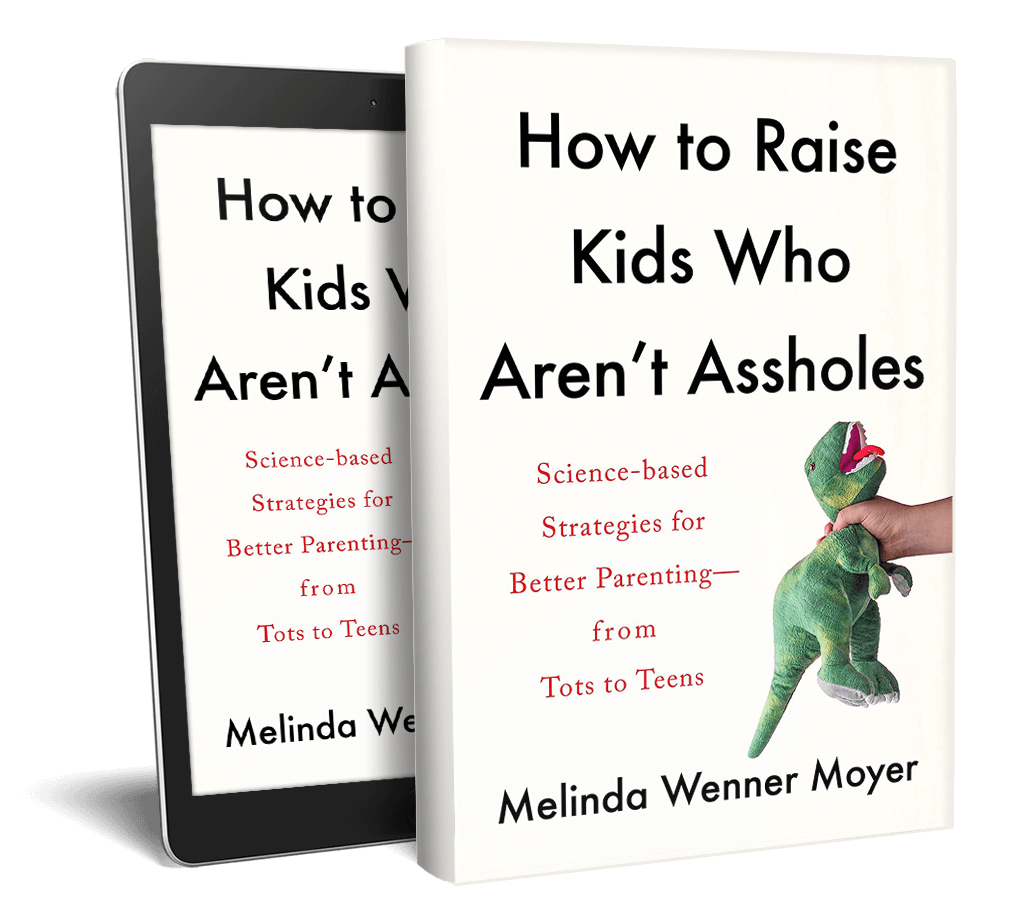"Sure I'll get your teddy bear. But first, give me a kiss."
Why we shouldn't ask kids for transactional affection.
Welcome to Is My Kid the Asshole?, a newsletter from science journalist and author Melinda Wenner Moyer, which you can read more about here. If you like it, please subscribe and/or share this post with someone else who would too.
In today’s Dear Melinda column, I’m addressing a question I got from a parent a few weeks ago, which I’ve paraphrased below:
My husband does this thing to my daughter and it drives me insane. She will ask him for something — like, “Daddy will you please get my blanket?”— and he’ll reply, "Yes, but first give me a kiss." This weekend it was, "But first sit on Daddy’s lap and snuggle." I don’t feel good about this, and I’ve asked him to stop, but he doesn’t understand why. Can you help?
When I first got this question I thought, oh my gosh WOW, yes — this does seem, well, icky. But it took me a minute to put my finger on exactly why. It has to do with the lesson these requests teach kids, especially considering that, in my experience, these requests often come from fathers and are directed towards daughters. I also called up Emily Rothman, the director of the Violence Prevention Lab at the Boston University School of Public Health, and Christia Spears Brown, a developmental psychologist who studies gender bias at the University of Kentucky, to get their thoughts.
First, I want to reassure parents who’ve said things like this to their kids — I do not think you’re creepy. We all want affection from our children, and some kids aren’t all that cuddly, so we do, sometimes, have to ask for it. And when your kid asks for a favor, that might feel like a perfect time to request a coveted kiss, hug or snuggle. There is nothing wrong with wanting affection from your kids; nor do I think that parents who ask for hugs or kisses in return for favors have bad intentions.
It’s also understandable why dads, more than moms, might make such requests: Fathers may not get as much affection from their kids as mothers do, Brown said, due to gendered social norms about who it’s acceptable to be affectionate with. Some dads may then be left to awkwardly ask for hugs and kisses— and they might feel it’s more acceptable to request them when they have something to offer in return.
But here’s the problem: These kinds of requests inadvertently teach our kids lessons that we don’t want to be teaching them — lessons that undermine their developing understanding of consent and body autonomy. When we treat affection transactionally, we teach our kids that “their physical affection is a type of currency,” Rothman said. One of the key lessons from any sexual violence prevention training is that you never owe anyone physical or sexual contact, no matter what someone has done for you in the past or will do for you in the future — and these interactions with kids directly undermine this message. (Sexual violence often stems from the myth that physical affection is transactional — like when a guy assumes that a girl owes him sex if he buys her dinner or walks her home.)
So “when you have somebody who is an authority figure in the family, at school, or in the workplace, who says ‘in order for you to get what you want, you need to first allow me access to your body,’ that sends a powerful training message,” Rothman said. It tells kids that they aren’t in charge of their bodies — people in power are — and that consent doesn’t apply in certain situations or power hierarchies.
So what should you do if you see your partner asking your kid for a transactional hug? Don’t tell them they’re being creepy — that’s just going to make them defensive. Instead, Brown suggested raising concerns about the message the request might inadvertently give your child. Maybe you say, I don’t want our daughter to think that she has to give affection to get the things she needs. I know you’re not trying to make her think that, but that might be what she takes from this.
Then, encourage your partner to ask for affection, no strings attached. May I have a hug? Or Would you like to snuggle? are perfectly reasonable requests. And yes, you do want to ask for affection rather than demand it, because asking communicates to your child that they are in charge of their body, and they’re never expected or required to do things with it that they don’t want. (If you want to read more on this topic, check out my book, as I delve into these issues in detail.) If your child says no, respect their choice — don’t respond with Aww, that makes me sad. You want your kid to understand that it is absolutely OK to say no, and that they should not feel guilty for taking ownership of their body.
Yesterday evening, I had a blast doing a virtual event with the UCLA Semel Institute for Neuroscience and Human Behavior. There were more than 400 attendees! I talked about my book and had a fantastic conversation with psychiatrist Robin Berman. If you missed it, you can watch the video here.
The Super Nice Club interviewed me for two different podcast episodes, both of which are out this week.







For a little levity, I would like to share what happened in my house the other night. My five-year-old has been asking us to do things for him that he can do on his own, like put on his clothes/shoes, find and fetch toys, etc., probably because he's a bit jealous of his two-year-old brother, who still needs help with these things. The other day Five asked my husband to put his shoes on for him, and my husband joked "you have to give me a dollar." So Five comes up to me and says "Mama, can you get my piggy bank down, daddy needs some money." That triggered a nice long talk about how Daddy sometimes makes silly (and age inappropriate) jokes and we should just laugh and that doesn't mean Daddy isn't going to help us. But I also told him I was proud of him for offering up his piggy bank when he thought his dad needed money. He's only just learning how money works, and I found it touching that he was willing to share it with his family.